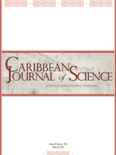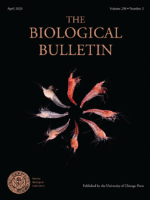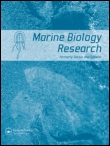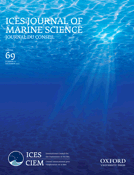
REVISTA DE BIOLOGIA MARINA Y OCEANOGRAFIA
Scope & Guideline
Illuminating the Path of Oceanographic Inquiry
Introduction
Aims and Scopes
- Marine Biodiversity and Taxonomy:
The journal emphasizes the documentation and classification of marine species, including fish, invertebrates, and macroalgae, contributing to the understanding of marine biodiversity. - Ecological Interactions and Community Dynamics:
Research on species interactions within marine communities, including feeding habits, predator-prey relationships, and the impact of environmental factors on community structure. - Environmental Monitoring and Management:
Studies that evaluate the status of marine resources and ecosystems, including assessments of populations, habitat conditions, and the effects of human activities. - Physiological and Biochemical Studies:
Investigations into the physiological responses of marine organisms to environmental stressors, including temperature, salinity, and pollutants, as well as studies on biochemical composition. - Conservation and Fisheries Management:
Research focused on the conservation of marine species and habitats, including management strategies for sustainable fisheries and the evaluation of conservation areas.
Trending and Emerging
- Impact of Climate Change on Marine Species:
There is an increasing focus on how climate change affects marine organisms, including studies on temperature effects, thermal fronts, and changing reproductive patterns. - Use of Technology in Marine Research:
Emerging themes include the application of remote sensing and low-cost video technologies for studying marine environments, indicating a trend towards innovative methodologies in data collection. - Conservation and Restoration Efforts:
Research aimed at conservation strategies, including the effectiveness of marine protected areas and rehabilitation of marine species, has gained prominence, reflecting a global push for sustainable practices. - Chemical Ecology and Biochemical Studies:
An uptick in studies examining the biochemical composition and ecological roles of marine organisms, such as fatty acid profiles and antioxidant capacities, indicates a growing interest in chemical ecology. - Invasive Species and Ecological Impacts:
An emerging focus on the ecological impacts of invasive species within marine ecosystems, highlighting their effects on native species and community dynamics.
Declining or Waning
- Traditional Fisheries Studies:
Research focused solely on traditional fisheries practices and catch data appears to be waning, possibly due to a shift towards more integrated approaches that consider ecological impacts and sustainability. - Morphological Studies of Common Species:
There seems to be a decline in publications that focus primarily on the morphological descriptions of well-known marine species, as the field moves towards more integrative and molecular approaches. - Longitudinal Studies on Established Species:
Long-term studies on widely known species, particularly those that do not highlight new findings or significant changes, have decreased, suggesting a shift towards more urgent or novel research themes.
Similar Journals

CARIBBEAN JOURNAL OF SCIENCE
Connecting researchers to elevate Caribbean scientific inquiry.Caribbean Journal of Science, published by the University of Puerto Rico, serves as a crucial platform for disseminating innovative research in the field of science across the Caribbean region. With an ISSN of 0008-6452, this journal captures the essence of multidisciplinary studies, ranking 47 out of 111 in its category, showcasing a 58th percentile within Scopus. Although it doesn't currently offer Open Access, it has extended its academic reach since its inception in 1980, fostering collaboration and knowledge growth among researchers, professionals, and students alike. The journal covers an expansive range of scientific disciplines and continues to be a vital resource for those seeking to engage with and contribute to the scientific landscape of the Caribbean. For anyone dedicated to advancing scientific inquiry and practice in this vibrant region, the Caribbean Journal of Science represents an invaluable asset.

Ocean Science Journal
Transforming Ocean Insights into ActionOcean Science Journal, published by the Korea Institute of Ocean Science and Technology (KIOST), is a pivotal resource for scholars and practitioners in the field of oceanography. With the ISSN 1738-5261 and E-ISSN 2005-7172, this journal presents cutting-edge research from 2006 to 2024, bridging fundamental and applied ocean sciences. Based in South Korea, with its headquarters located in Busan, the journal has achieved a commendable Scopus rank of #72 out of 145 in the domain of Earth and Planetary Sciences, placing it in the 50th percentile among peer publications. Classified in the Q3 category of the 2023 Oceanography rankings, Ocean Science Journal offers a platform for innovative studies that advance understanding of marine environments and promote sustainable ocean practices. While it does not operate under an open access model, readers and contributors can expect high-quality, peer-reviewed material that addresses pressing oceanic challenges and developments. This journal serves as an essential tool for researchers, professionals, and students committed to fostering marine science and ocean technology.

MARINE AND FRESHWATER RESEARCH
Advancing knowledge in marine and freshwater science.Marine and Freshwater Research is a prestigious journal published by CSIRO PUBLISHING that serves as a key platform for the dissemination of cutting-edge research in the fields of Aquatic Science, Ecology, and Oceanography. With an impactful presence since its inception in 1948, the journal provides critical insights into the dynamics of freshwater and marine ecosystems, promoting interdisciplinary approaches that contribute to our understanding of biodiversity and sustainability. Currently ranked in the Q2 category across major scientific domains, including Ecology and Aquatic Science, it enjoys a robust academic reputation supported by impressive Scopus rankings, such as Rank #66/247 in Aquatic Science and Rank #44/145 in Oceanography, reflecting its high citation impact and relevance. While offering a subscription-based access model, the journal remains dedicated to fostering dialogue and innovation within the scientific community, aiming to bridge the gap between research findings and practical applications in environmental management. Located in Australia, Marine and Freshwater Research is an essential resource for researchers, professionals, and students dedicated to exploring the complexities of aquatic ecosystems and advocating for their preservation.

BIOLOGICAL BULLETIN
Connecting scholars with cutting-edge biological insights.BIOLOGICAL BULLETIN is a premier journal published by The University of Chicago Press, catering to the vibrant field of Agricultural and Biological Sciences. Established in 1945, this long-standing publication has evolved to serve as a critical platform for disseminating cutting-edge research and insights across various biological disciplines. With a commendable impact factor and ranking in the top quartile (Q1) of its category, the journal is recognized for its rigorous peer-review process and its commitment to high-quality scholarship, ranking #74 out of 221 in the Agricultural and Biological Sciences category on Scopus. Researchers, professionals, and students will find a valuable resource in BIOLOGICAL BULLETIN, as it continually fosters scientific dialogue and innovation, ensuring the advancement of knowledge in the biological sciences. Although not openly accessible, the journal provides numerous access options for institutions and individuals wishing to engage with its content.

MARINE ORNITHOLOGY
Unveiling the Wonders of Seabirds and Their HabitatsMarine Ornithology, published by the Pacific Seabird Group, is a vital resource in the field of animal science, zoology, and oceanography. With an ISSN of 1018-3337 and E-ISSN of 2074-1235, this journal has been a cornerstone for researchers and enthusiasts since its inception, actively contributing to the understanding of marine bird species and their ecosystems. Although it is currently not an open-access journal, it provides critical insights and findings that inform both academic research and practical conservation efforts. With its category quartiles positioned in Q3 for both Animal Science and Zoology, and Oceanography, Marine Ornithology occupies a significant, albeit competitive niche among scholarly publications. Researchers can benefit from its comprehensive coverage of marine avian studies, which is crucial for addressing the challenges these species face in changing oceanic environments. As the journal continues to evolve, with coverage from 1990 to 2024, it maintains an essential role in enriching our knowledge of marine biodiversity.

Marine Biology Research
Connecting researchers to preserve our oceans.Marine Biology Research is a premier journal published by Taylor & Francis, focusing on the dynamic field of marine biology and its intersecting realms of aquatic science, ecology, and oceanography. Since its inception in 2005, this journal has served as a crucial platform for researchers and professionals to disseminate their findings, with a vision extending to 2024 and beyond. The journal is recognized with a Q3 quartile ranking in both Aquatic Science and Ecology, Evolution, Behavior and Systematics, underscoring its growing influence in these fields as evidenced by its Scopus rankings. Located in the United Kingdom, Marine Biology Research aims to foster collaboration and innovation through open access options, facilitating knowledge exchange among the academic community. With a steady commitment to advancing marine sciences, this journal is an invaluable resource for those dedicated to understanding and preserving our ocean ecosystems.

THALASSAS
Navigating the Future of Oceanography and Aquatic ScienceTHALASSAS is a prominent academic journal specializing in the fields of Aquatic Science and Oceanography, published by Springer International Publishing AG. Established in 2005 and running through 2024, this journal serves as a vital platform for sharing groundbreaking research and innovative findings related to the marine environment and its ecosystems. With an ISSN of 0212-5919 and an E-ISSN of 2366-1674, THALASSAS is indexed in Scopus and currently holds a Q3 classification in both Aquatic Science and Oceanography for 2023, reflecting its relevance and contribution to these scientific disciplines. Although it does not follow an Open Access model, THALASSAS offers valuable insights for researchers, professionals, and students interested in sustainable ocean management and aquatic biodiversity. Its rigorous peer-review process ensures that published articles meet the highest standards of academic quality, fostering a deeper understanding of marine sciences and addressing critical issues facing aquatic systems today.

CAHIERS DE BIOLOGIE MARINE
Fostering Innovation in Aquatic SciencesCAHIERS DE BIOLOGIE MARINE, published in France, is a distinguished journal in the field of Aquatic Sciences, known for its interdisciplinary exploration of marine biological research. With ISSN 0007-9723 and E-ISSN 2262-3094, it has served as a vital platform for disseminating scientific knowledge since its inception in 1992. The journal is indexed in Scopus, where it currently holds a position of rank #172 out of 247 in the Aquatic Science category, landing in the 30th percentile, reflecting its commitment to quality research in the domain. Although it operates as a traditional access journal, CAHIERS DE BIOLOGIE MARINE encourages scholarly contribution from both emerging and established researchers, making significant strides in understanding marine ecosystems and biota. As such, it remains an essential resource for professionals and students aiming to contribute to the growing body of knowledge in aquatic sciences.

ICES JOURNAL OF MARINE SCIENCE
Charting the Course for Future Marine DiscoveriesThe ICES Journal of Marine Science, published by Oxford University Press, stands at the forefront of marine research, offering cutting-edge insights into aquatic sciences and oceanography since its inception in 1903. With its ISSN 1054-3139 and E-ISSN 1095-9289, this esteemed journal has garnered a reputation for excellence, evidenced by its Q1 rankings in categories such as Aquatic Science, Ecology, and Oceanography as of 2023. The journal's commitment to advancing knowledge in marine systems makes it an essential resource for researchers, professionals, and students alike, who are keen to explore the intricate ecosystems that sustain our planet. Without an open access model, the journal maintains a rigorous editorial standard and is recognized among the top journals, ranking impressively in various Scopus categories. Authored contributions reflect pioneering research that informs policy and fosters sustainable practices, making this journal a critical platform for disseminating marine science knowledge.

REVMAR-Revista Ciencias Marinas y Costeras
Advancing marine knowledge for a sustainable future.REVMAR-Revista Ciencias Marinas y Costeras is an esteemed open-access journal published by the Universidad Nacional, Facultad de Ciencias Exactas y Naturales in Costa Rica. Since its establishment, it has focused on disseminating high-quality research in the fields of Marine and Coastal Sciences, contributing significantly to the understanding of aquatic ecosystems and their conservation. With a commitment to academic excellence, the journal has been continuously accessible since 2009, allowing researchers from around the globe to share findings without barriers. Although it holds a Q4 ranking in several key categories including Animal Science, Aquatic Science, and Ecology, the journal provides a vital platform for scholars at all stages of their careers to contribute to important dialogues surrounding marine biodiversity and environmental sustainability. As it enters a period of convergence from 2019 to 2024, REVMAR aims to enhance its visibility and impact within the scientific community while maintaining a focus on innovative research that addresses pressing ecological challenges faced by marine and coastal environments.